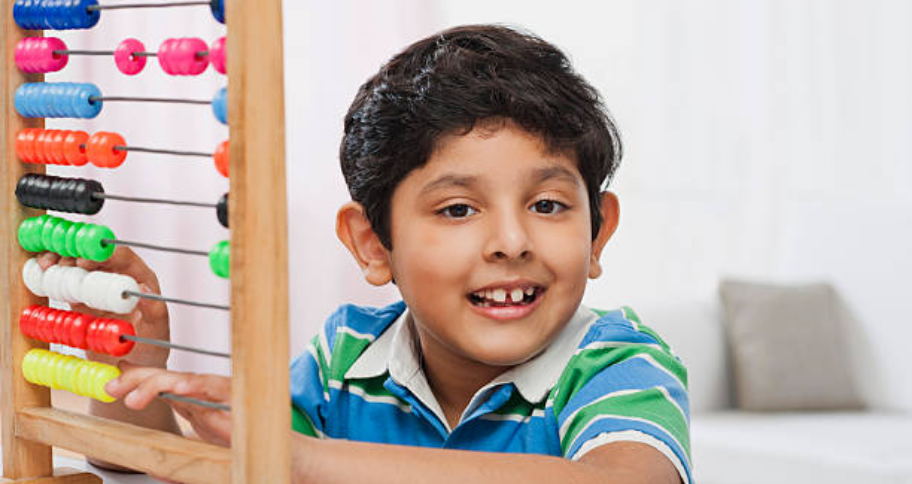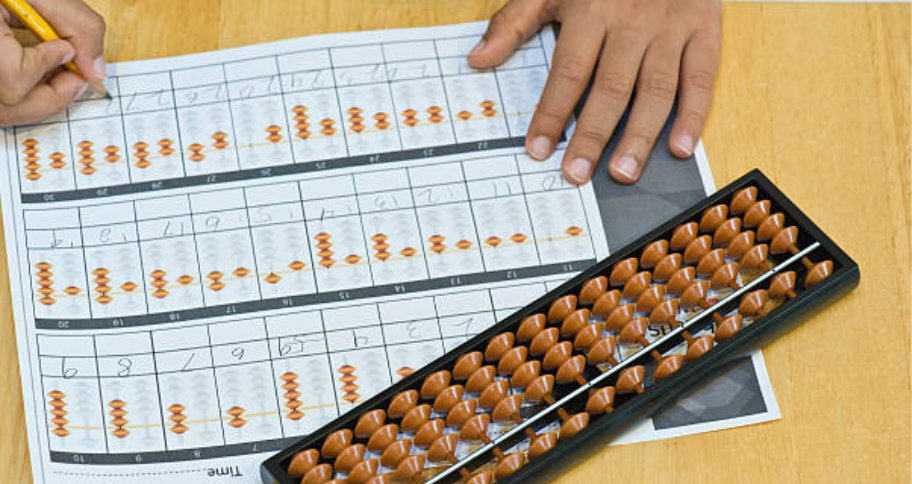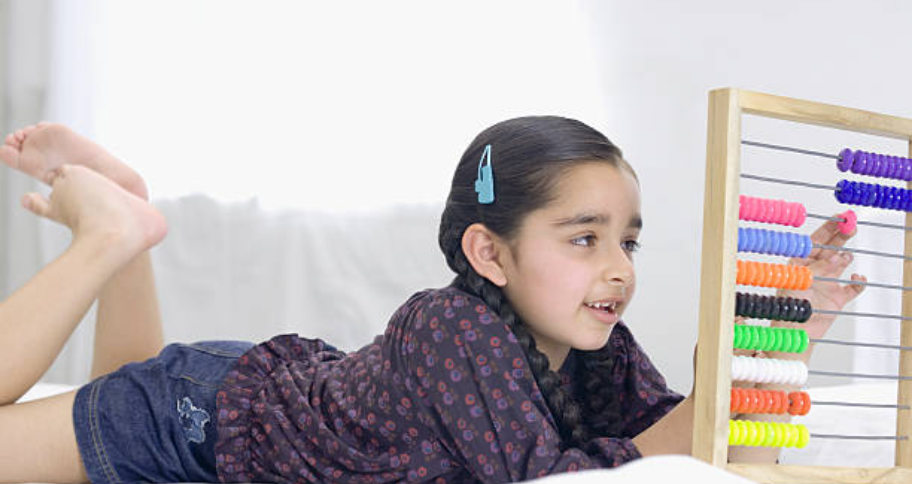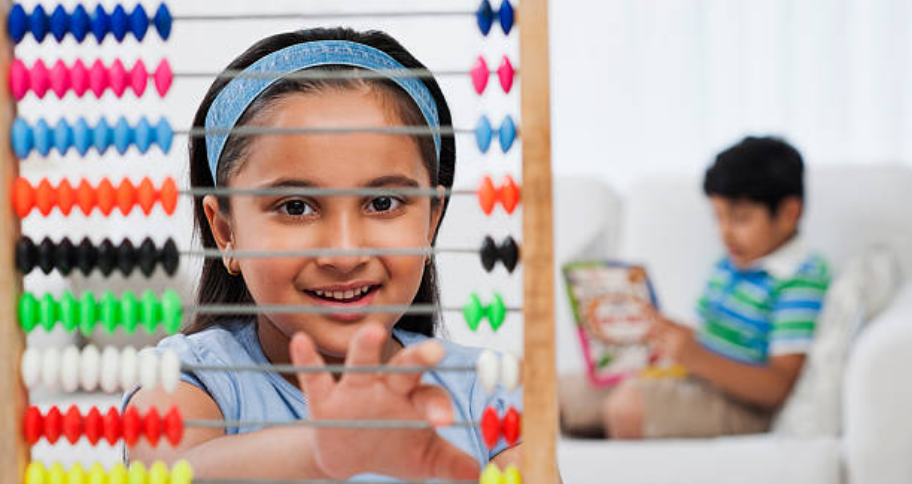11 Key Benefits of Abacus for Kids
orchidadmin |
Child Learning |
2023-09-05 |
4 mins read

Table of Contents
Admissions Open for
What is abacus?
An abacus is a century-old tool that is used for math calculations. Asian and African merchants and traders were widely known for their usage of the Abacus. Although mainly found in China and Japan, other regions of the world such as Mesopotamia, Persia, Rome, India, and Greece were also known to use an abacus. But what is the purpose of using abacus? Can someone learn abacus for 7 year old. Lets find out abacus advantages, benefit of learning abacus.
Structure of an Abacus

An abacus is usually divided into two regions, the upper and the lower. The bar used to separate the sections is called a bar. This helps improve mental calculations and quicker addition, subtraction, division, and multiplication.
While everyone knows how handy it is to use an abacus for math, there are several hidden benefits of abacus that help a child’s overall development without anyone noticing. The early years are when most of the child’s development occurs, enrolling them in abacus classes early can help them tremendously.
Here Are a Few of the Less Obvious Benefits of Abacus

1. It Improves Concentration
While the child learns how to use an abacus and carry out simple mathematical operations, the child is also learning to drown out any distraction around them. Once they have mastered abacus use, they then move on to a simple visualization technique that helps them assume the Abacus in their mind and carry out calculations virtually. This, in turn, further boosts their concentration skills even more. These skills get carried forward to other walks of life, and the child can easily focus on anything that comes their way, be it in school or at home.
2. Improves Observation and Listening Skills
With the help of flashcard training, one of the mental training techniques, and while solving mental math problems, a child who has been learning Abacus for math can start processing numbers with just one glance. As the training continues, the child hones their observational skills. Similarly, the listening skills also get better as the kids are trained to hear the numbers only once while solving the problems. This teaches the kids to actively listen to the questions and improve their listening skills in life.
3. Enhances Visualization and Imagination
Very early in their training, kids are encouraged to use a virtual abacus. This helps them quickly solve problems by just imagining an abacus. The more the kid starts using this technique, the better their imagination and visualization skills get.
4. Memory Strengthening as one of the Benefits of Abacus
A child has to memorize several images during their number training and while solving problems. Students who are learning Abacus also tend to remember the final image constructed while solving the problem before giving the last answer. By continuous practice, a child’s ability to memorize something they see improves and can even lead to it becoming a photographic memory.
5. Amplify Speed and Accuracy
Most competitive exams are a time crunch, and the child, although grown, needs to be able to give accurate results in a shorter time. Learning Abacus can help teach a child how to optimize their time as well as staying accurate.
6. Boosts Creativity
Because they have good visualization and imagination skills, the child’s brain has the right training and activation, which inspires the child to be more creative.
7. Increases Self-Confidence
A child who learns Abacus is continually receiving positive feedback from their teachers, parents, and peers. They are also usually exposed to many programs that have different audiences, especially if they take part in demonstrations, national and international competitions. With improved mental abilities, these kids get a powerful boost for their self-image and confidence. This also helps them be more confidant in future challenges.
8. Strong Academic Foundation
All of the above parameters get firmly embedded into the child’s psyche. This lays a strong foundation for them to excel in their academics.

9. Reduces Stress
The Abacus is known to help stimulate brain activities, which usually leads to a break in anxiety levels. The more the child starts to enjoy using the Abacus, the happier they are while reducing stress levels to almost nonexistent.
10. Enhances Gross Motor Skills
The child has to use their hands and fingers to move the beads of the Abacus. Although younger children benefit more from this than they do when they get older, the movement of the small beads helps the child develop their gross motor skills. While the Abacus is improving brain function, one of the major benefits of abacus helping to stimulate sensory organs that result in overall development for the child.

11. Analytical skills, One of the Major Benefits of Abacus
When a child is solving a mathematical problem with an abacus’s help, they are also honing their analytical skills. A great example of this is when they learn to solve the same problem with several simple formulas. The child automatically learns to figure out which is the right formula to use, which helps them build analytical skills. These skills get carried forward, and they can use them in real-life situations.
The sheer number of benefits that the child gains when learning to use an abacus has been a popular extracurricular activity. With its rising popularity, most schools have also started to introduce abacus training in their regular classes.
If you are wondering what the right age for learning Abacus is, your child can start classes as early as 4 years. At this age, the child’s brain processes information the right way, and they have a better understanding of how to use the beads and get their solution right. However, it is never too late for a child to learn a new skill, and this one is definitely worth learning at any age due to the numerous benefits of abacus.
Other Related Blogs :
6 Things Parents Should Know While Raising Children with Autism Essential tips for supporting autistic children
5 ways to encourage children to learn to code Simple tips to inspire kids to code
Other Related Sections
NCERT Solutions | Sample Papers | CBSE SYLLABUS| Calculators | Converters | Stories For Kids | Poems for Kids| Learning Concepts | Practice Worksheets | Formulas | Blogs | Parent Resource
CBSE Schools In Popular Cities
- CBSE Schools in Bangalore
- CBSE Schools in Mumbai
- CBSE Schools in Pune
- CBSE Schools in Hyderabad
- CBSE Schools in Chennai
- CBSE Schools in Gurgaon
- CBSE Schools in Kolkata
- CBSE Schools in Indore
- CBSE Schools in Sonipat
- CBSE Schools in Delhi
- CBSE Schools in Rohtak
- CBSE Schools in Bhopal
- CBSE Schools in Aurangabad
- CBSE Schools in Jabalpur
- CBSE Schools in Jaipur
- CBSE Schools in Jodhpur
- CBSE Schools in Nagpur
- CBSE Schools in Ahmednagar
- CBSE School In Tumkur

Call Us to know more about Orchids
Swipe Up

















